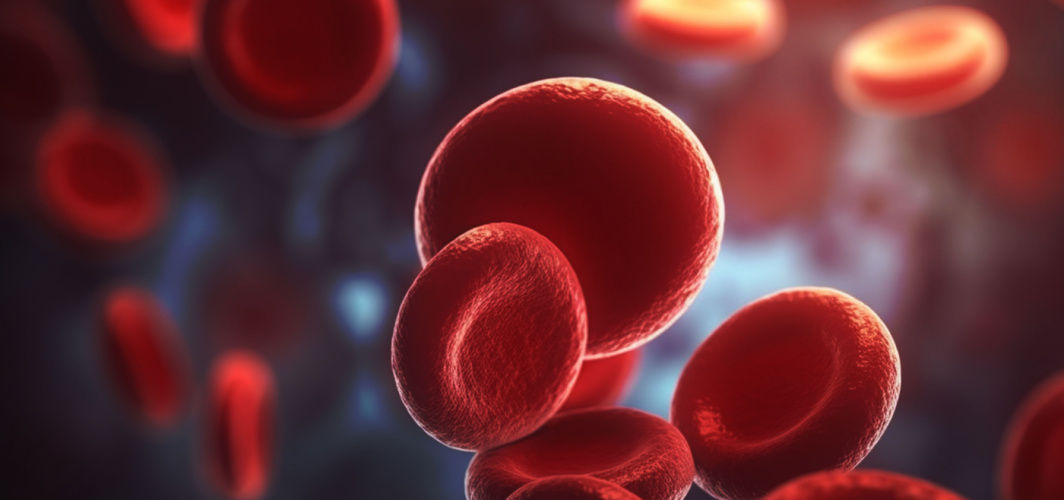General Health
Typhoid: Causes, Symptoms, Tests, Treatment
7 min read
By Apollo Pharmacy, Published on - 21 July 2023
Share this article
0
0 like

Typhoid fever is a serious bacterial infection caused by Salmonella typhi. It is a significant global health issue, especially in developing countries with poor sanitation and hygiene practices. Approximately 215,000 deaths result from over 26 million cases of typhoid fever and 5 million cases of paratyphoid infection each year worldwide.
Symptoms of typhoid can vary from mild to severe and typically appear 1-3 weeks after exposure to the bacteria. However, early diagnosis and treatment with antibiotics can significantly reduce complications and the risk of spreading the infection. Let's know more about this infection.
Cause of Typhoid Fever
It is important to understand how typhoid spreads to prevent its occurrence:
- Consumption of Contaminated Food or Water: Typhoid bacteria can contaminate food and water sources, especially if they come into contact with bacteria-containing faecal matter. Consuming these contaminated substances can lead to typhoid infection.
- Poor Sanitation Practices: Lack of proper sewage disposal and unhygienic practices can allow the bacteria to spread easily.
- Role of Carriers: Some individuals, known as carriers, can harbour typhoid bacteria in their bodies without showing any symptoms. These carriers can unknowingly spread the infection to others through contaminated food or water.
Risk Factors for Typhoid Infection
Several factors can increase the susceptibility to typhoid infection, some of which include:
- Living in Crowded Areas with Inadequate Sanitation: Overcrowded living conditions, lack of proper sanitation, close contact with infected individuals and contaminated environments increase the risk of typhoid transmission.
- Travelling to High-Risk Regions: Traveling to areas with higher rates of typhoid infection increases the risk of exposure to contaminated food or water sources.
- Exposure to Carriers: Contact with individuals who are carriers of typhoid bacteria poses a significant risk. This can occur through close personal contact or by sharing utensils, food, or drinks.
Symptoms of Typhoid Fever
1. Incubation Period and Acute Stage
The average incubation period of typhoid typically ranges from 10 to 14 days. During this time, the bacteria responsible for typhoid multiplies in the small intestine and eventually spreads throughout the body.
Once the incubation period is over, the acute stage of typhoid begins. This is when symptoms start to appear and can last for several weeks. The most common symptoms include:
- Sustained high fever: The fever can persist for up to several weeks and may be accompanied by chills and sweating.
- Weakness and fatigue: Patients often experience extreme tiredness and lack of energy.
- Abdominal pain: Pain and discomfort in the abdomen are common, along with a loss of appetite.
- Diarrhoea or constipation: Some individuals may experience frequent bowel movements, while others may have difficulty passing stools.
- Headache and body aches: A persistent headache and generalized body aches are often present.
- Rash: A rash of rose-coloured spots may appear on the chest and abdomen. These spots are small, pink, and slightly raised. Rose spots may fade over time and are usually seen during the second week of illness.
- Mental confusion: In severe cases, typhoid can affect mental function, leading to confusion or delirium.
2. Severe Complications of Typhoid
While most cases can be treated with antibiotics, it is important to be aware of the potential complications that can arise if the condition is left untreated or becomes severe.
- Intestinal perforation: This occurs when a hole forms in the wall of the intestine, allowing bacteria from the intestines to leak into the abdominal cavity. It is a life-threatening condition that requires immediate medical intervention.
- Gastrointestinal bleeding: In severe cases, the ulcers that develop in the intestinal lining can cause bleeding. This can lead to symptoms such as bloody stools or vomiting blood and may require blood transfusions or surgical intervention.
- Neurological symptoms: In rare cases, typhoid fever can affect the central nervous system, leading to symptoms like confusion, delirium, or seizures.
Diagnosing Typhoid Fever
1. Clinical Evaluation
While diagnosing typhoid fever, the doctor would check the vital signs such as temperature, pulse rate, and blood pressure along with the examination of the abdomen to evaluate any tenderness or enlargement of the liver and spleen.
In addition to this, the doctor will ask about any recent travel history and the medical history of the patient.
2. Laboratory Tests
Laboratory testing plays a crucial role in diagnosing typhoid. Common tests include:
- Blood culture: By growing a sample of your blood in a laboratory dish, medical professionals can identify the specific bacteria causing the infection. This test is highly accurate and helps determine the most effective antibiotic treatment.
- Widal test: Widal test measures the presence of antibodies against Salmonella typhi. A significant rise in antibody levels in paired blood samples indicates a current or recent infection.
- Other diagnostic methods: Polymerase chain reaction (PCR) is a molecular technique that amplifies and detects the genetic material of Salmonella typhi. Stool cultures and Typhidot IgG & IgM tests can also be used to isolate and identify the bacteria from a stool sample.
Treatment and Management of Typhoid Fever
The treatment of typhoid includes:
1. Antibiotic Therapy
Antibiotics play a crucial role in killing the Salmonella bacteria. Commonly prescribed antibiotics for typhoid include ciprofloxacin, azithromycin, and ceftriaxone. It is essential to complete the full course of antibiotics as prescribed by your doctor to ensure complete eradication of the bacteria.
2. Fluid Replacement
Fluid replacement therapy is crucial for managing dehydration caused by typhoid fever. Oral rehydration solutions (ORS) containing a balanced mix of salts and sugars are effective in replenishing lost fluids and electrolytes. In severe cases, intravenous fluids may be necessary to restore hydration levels.
3. Nutritional Support
Adequate nutrition is vital during the recovery phase of typhoid fever. Focus on consuming easily digestible foods such as:
- Boiled rice
- Boiled vegetables
- Soups
- Yoghurt
- Seasonal fruits
4. Hospitalization and Monitoring
Hospitalization may be necessary for individuals with severe dehydration, persistent high fever, or complications like intestinal bleeding or perforation. Close monitoring during hospitalization allows healthcare professionals to assess the patient's condition, administer appropriate treatments, and manage any potential complications promptly.
How to Prevent Typhoid?
1. Safe Food Handling Practices:
- Wash your hands thoroughly before handling food and after using the restroom.
- Cook all meats, especially poultry, thoroughly to kill any bacteria present.
- Avoid consuming raw or undercooked eggs.
- Peel fruits and vegetables or wash them thoroughly before eating.
- Avoid consuming unpasteurized dairy products.
2. Improved Sanitation:
- Ensure safe drinking water by using clean, filtered water or boiling water before consumption.
- Practice good hygiene by regularly cleaning and disinfecting surfaces and utensils.
- Use sanitary facilities and dispose of waste properly to prevent contamination.
3. Vaccination:
- Get vaccinated against typhoid fever, especially if you are travelling to areas where the disease is prevalent.
- The two types of typhoid vaccines available are the injectable vaccine and the oral vaccine.
Conclusion
It is essential to identify the symptoms of typhoid to ensure timely treatment and reduced risk of complications. Moreover, one must practise good personal hygiene, such as regular handwashing with soap and water, and safe food practices to prevent the spread of typhoid.
Ensure hydration during typhoid with, ORS Solution
FAQs
Q. Are there any long-term complications of typhoid?
In some cases, typhoid may lead to long-term complications such as intestinal perforation, liver or gallbladder problems, and neurological issues.
Q. Is antibiotic resistance a concern in treating typhoid?
Overuse and misuse of antibiotics have contributed to the development of drug-resistant strains of Salmonella typhi. This has made the treatment of typhoid extremely challenging.
Q. Is there a specific diet for typhoid patients?
It is recommended to consume easily digestible foods like soups, boiled vegetables, and fruits. Adequate fluid intake is also essential to prevent dehydration.
Q. Can you get typhoid more than once?
Yes, it is possible to contract typhoid multiple times, as the immunity gained after infection is not long-lasting.
Q. Can infected people be asymptomatic carriers of typhoid?
Yes, some people can be carriers of typhoid without getting sick themselves but can still spread the infection to others.
Medically reviewed by Dr Sonia Bhatt.
General Health
Consult Top Infectious Disease Physicians
View AllLeave Comment
Recommended for you

General Health
Not All Brain Tumours Are Cancerous! Know When to Worry?
While most brain tumours are non-cancerous, some of them can be life-threatening too. Timely diagnosis can help reveal the type and improve the chances of better treatment outcomes.

General Health
Blood Disorders: Types, Symptoms & Treatments
Learn about different types of blood disorders, their symptoms, and the latest treatments available. Stay informed and take control of your blood health!

General Health
Debunking The Most Common Myths About Vaccines
Vaccines work by triggering an immune response in the body, thus protecting against those specific diseases. In general, side effects from vaccines are mild; however, much misinformation about vaccine safety and effectiveness still tends to generate fear among people. This blog highlights the top 5 misconceptions related to vaccination.
Subscribe
Sign up for our free Health Library Daily Newsletter
Get doctor-approved health tips, news, and more.
Visual Stories

Science-backed Home Remedies for Burns and Blisters
Tap to continue exploring
Recommended for you

General Health
Not All Brain Tumours Are Cancerous! Know When to Worry?
While most brain tumours are non-cancerous, some of them can be life-threatening too. Timely diagnosis can help reveal the type and improve the chances of better treatment outcomes.

General Health
Blood Disorders: Types, Symptoms & Treatments
Learn about different types of blood disorders, their symptoms, and the latest treatments available. Stay informed and take control of your blood health!

General Health
Debunking The Most Common Myths About Vaccines
Vaccines work by triggering an immune response in the body, thus protecting against those specific diseases. In general, side effects from vaccines are mild; however, much misinformation about vaccine safety and effectiveness still tends to generate fear among people. This blog highlights the top 5 misconceptions related to vaccination.